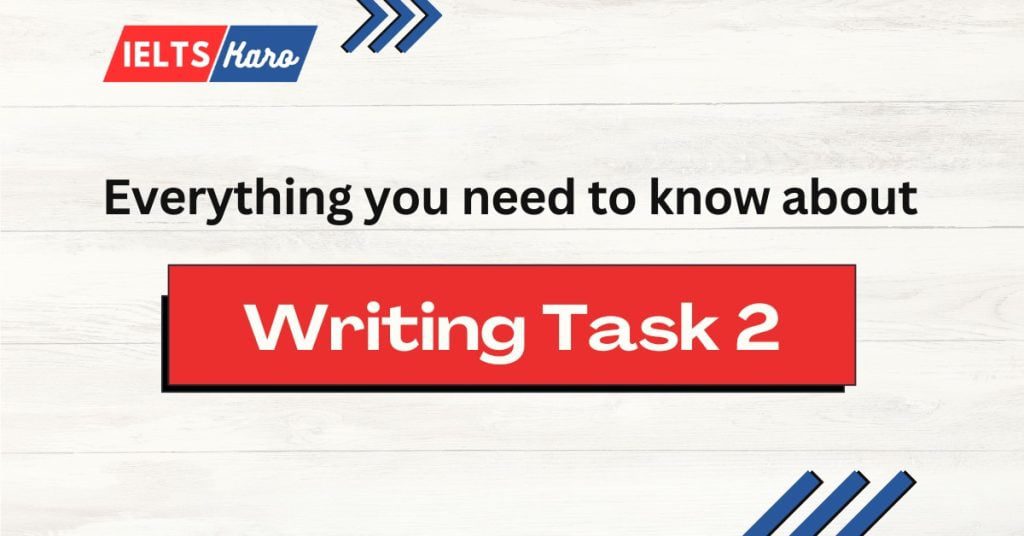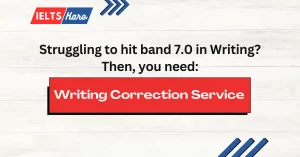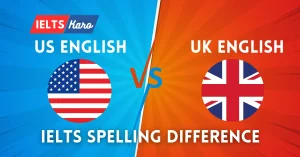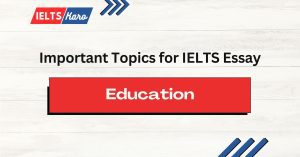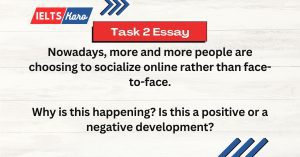“Oh no! I got to write 250 words of essay? I can’t do it!” If these are your thoughts, you’ve landed at the right place! Instead of being fearful, let me breakdown what exactly is the IELTS Writing Task 2 and how YOU can write a great essay that scores a 7+ band!
PS: Not sure how well you have written? Then get my customized IETLS Writing Correction Service.
Since I got an 8.5 in IELTS Writing, my personal experience shows that the more simple and to-the-point writing is, the easier it is to get a good band score. That’s because I have been through this situation. I know what works, and what doesn’t. People try to overcomplicate writing, but it shouldn’t be. Instead of using too much passive voice, and writing more than 350 words, all you need is simple, good vocabulary, with minimum grammatical and spelling mistakes.
IELTS Writing Task 2 is an essay, and the second part of the Writing module. The Writing test consists of two parts, Writing Task 1 – a short summary of a process, map, diagram or a chart in more than 150 words (Academic) or a letter of no less than 150 words (General Training). It requires you to write a minimum of 250 words in the form of an essay with a proper Introduction, Body, Reasonings and Conclusion.
You must write your essay with formal style, and spend at least 35 to 40 minutes on it.
IELTS Writing Task 2 Information:
- You are to write an essay of no less than 250 words, and aim to complete it within 40 minutes, including editing and proofreading.
- The writing style must be formal.
- You will be penalized if you write less than 250 words.
- The essay topic (regardless of Academic or General Training) is always going to be on a generic topic, such as public libraries, government spending, health and fitness, parenting, and so on.
- If you are good with computers, you can easily write the essay in less than 30 minutes, and take another 5 to 10 minutes in proofreading it.
- The essay is worth 67% of your total band score, which means it carries a lot of weight. Any mistakes and errors will have a bigger, negative impact on your band score.
- Keep similar length of paragraphs. If one body paragraph is of 10 lines, the other should be close to it, not 5 lines. There should be a symmetry in your writing.
- The writing criteria is the same Academic and General Training (Task 1 and 2):
- Task Response (25%) – Does your answer sufficiently address ALL parts of the question?
- Coherence & Cohesion (25%) – Is your answer sufficiently linking and making sense using linking words?
- Vocabulary (25%) – Are there enough synonyms and different words to ensure there is good vocabulary in your writing?
- Grammar (25%) – Is there a wide range of grammar used in your essay?
- You will get one of these in the questions:
- Advantages/Disadvantages
- Pros and Cons
- Discuss your views
- Agree or Disagree
- Problems and Solutions
- Regardless of the question type (as mentioned in point 8), you need to:
- Read the question thoroughly.
- Write a great introduction.
- Discuss BOTH parts.
- Write MORE and write FIRST about the side you are supporting, alongside reasonings and examples.
- Write slightly less about the side you are NOT supporting, alongside reasonings and examples.
- Provide a valid conclusion so that it reiterates your introduction.
- If you are appearing for IELTS on Computer, your word count will be updated in real-time as you type.
- Every word will be counted, including repeated words.
- Your opinion and strong thesis statement in the introduction sets the expectation for the IELTS examiner. Make sure you are focused on WHAT exactly you want to say. Do NOT deviate from the question.
What You Need to Write a Good Essay?
1. Read and understand the Question Statement thoroughly!
Always read the question statement thoroughly and more than once. You won’t believe just how many students do not understand the question, and end up writing the wrong answer. You NEED to provide sufficient information with proper paragraphing and reasoning to write your answer.
DO NOT cite references such as “According to BBC, 30% of the respondents”. No, that is NOT required. You will write this essay based on your own general knowledge, and citing resources is not going to help you get a good band score.
2. Spend some time in planning your answer
You have 40 minutes to write a 250-300 word essay; 40 minutes! That’s enough time to write this essay twice. Not going to lie, but it took me 20 minutes, including a 5-minute preparation. If you want to get the highest marks, always plan your answer. Since planning is important, it will help in achieving your desired score.
You can do it by jotting down your thoughts in bullet points for each side of the question on a separate piece of paper provided to you during the IELTS exam. Planning helps you to organize your ideas and save your time and effort by knowing what you have to write on.
3. Write a great introduction
Your introduction sets the tone and expectations for the rest of your Writing Task 2 essay. The intro is a rewrite of the question in your own words, plus a thesis statement which resembles a strong opinion. This signals the examiner that you as a candidate are crystal clear on what you will be writing ahead.
It also shapes up your main body paragraphs. With a crisp introduction, you have already taken a great first start!
4. Write the main body paragraphs
Your body paragraphs provide more details about your opinion, with supporting evidence. For example, if your question is “Should parents punish their children. Discuss both sides and give your opinion with reasons to support your answer.” You can have body paragraphs that answer like this:
First body paragraph providing detail on punishing the children, with reasons/examples to support the answer.
Second body paragraph providing opposing point of view, with reasons/examples to support the answer.
5. Write a conclusion
Because the conclusion is no different than the introduction, you need to sum it up with the main points from your essay in the form of one small paragraph.
Writing Task 2 FAQs
1. Will writing less than 250 words penalize me?
Yes it will. Do not write less than 250 words as this is the minimum word count.
2. How can I get a 7, 8 or a 9-band score?
There are a multitude of factors that lead to a higher band score. Excellent vocabulary, grammar, and writing style all contribute toward getting an amazing score in your IELTS writing. You need to practice by writing, and having it reviewed by an expert IELTS instructor (like me, who got an 8.5).
3. Can you provide relevant examples to yourself?
Because you need to provide relevant examples, you can also take about your personal ones, without mentioning the names of any family members or friends.

